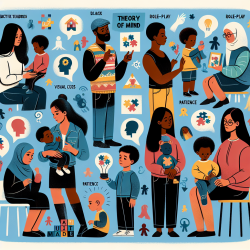Introduction
In the realm of online therapy services, particularly for children, financial sustainability is a crucial aspect that ensures the continuity and quality of care. The research article "Design for Financial Sustainability" provides a comprehensive framework that can be adapted to improve financial practices within organizations like TinyEYE. This blog explores how practitioners can implement these insights to enhance their financial strategies, ensuring long-term sustainability and better outcomes for children.
Understanding Financial Sustainability
The concept of financial sustainability, as outlined in the research, involves creating systems that are resilient and adaptable to changing economic conditions. This is achieved through a principled approach that draws inspiration from nature’s sustainable designs. By adopting an inside-out design pattern, organizations can focus on strengthening their core operations before expanding externally.
Applying Axiomatic Design in Online Therapy
Axiomatic design, a key framework discussed in the research, emphasizes the independence of functional requirements and the minimization of information content. For online therapy providers, this means clearly defining the core services and ensuring that each service operates independently without unnecessary complexity. This approach helps in maintaining the quality of service while managing costs effectively.
Key Strategies for Practitioners
- Focus on Core Services: Prioritize essential therapy services that directly impact children's outcomes. Avoid overextending resources on non-essential services.
- Data-Driven Decision Making: Utilize data analytics to assess the effectiveness of therapy sessions and make informed decisions on resource allocation.
- Adaptability and Flexibility: Design systems that can quickly adapt to changes in demand or funding without compromising service quality.
- Cost Management: Implement cost-control measures that do not affect the quality of therapy provided to children.
Encouraging Further Research
While the insights from the research provide a strong foundation, practitioners are encouraged to engage in further research to tailor these principles to their specific contexts. Continuous learning and adaptation are vital in maintaining financial sustainability in the dynamic field of online therapy.
Conclusion
By adopting a principled approach to financial sustainability, online therapy providers like TinyEYE can ensure the longevity and effectiveness of their services. This not only benefits the organization but also enhances the quality of care provided to children. For a deeper understanding of the principles discussed, practitioners are encouraged to read the original research paper, Design for financial sustainability.










